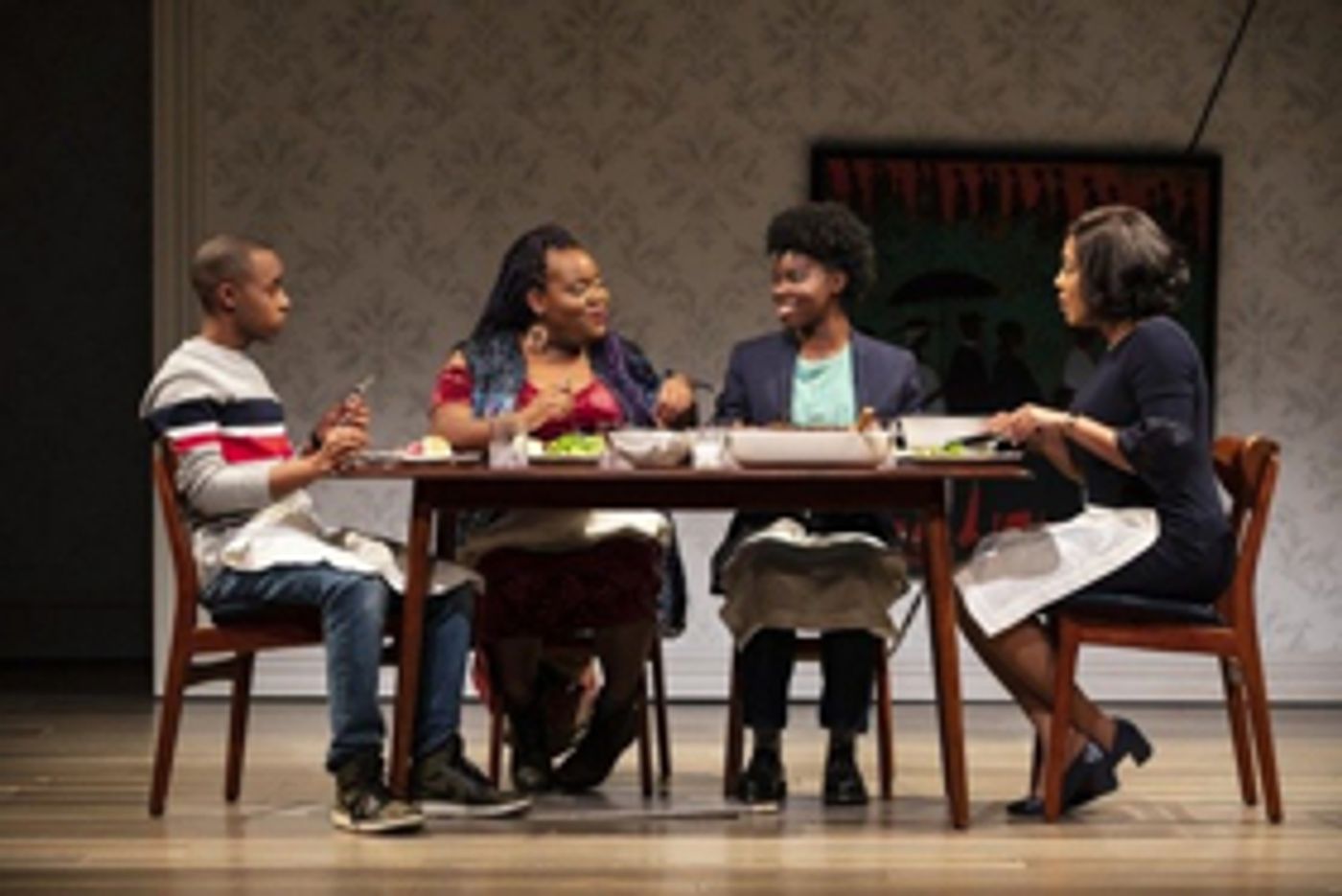Review Roundup: What Do The Critics Think of The Public's EVE'S SONG?

The Public's Eve's Song officially opened last night, November 7th at The Public's LuEsther Hall. The play runs through Sunday, December 2.
In the aftermath of a messy divorce and a daughter coming out as queer, Deborah is trying to keep things normal at home. But as black people continue to be killed beyond their four walls, the outside finds its way in, blurring the lines between family dynamics, politics, and the spirit world. How long can family dinners keep the dangers outside at bay? Filled with dark humor and boiling suspense, EVE'S SONG examines our present racial climate through the eyes of a regular American family.
The complete cast of EVE'S SONG features De'Adre Aziza (Deborah), Karl Green (Mark), Ashley D. Kelley (Upendo), Vernice Miller (Spirit Dancer),Kadijah Raquel (Lauren), Rachel Watson-Jih (Spirit Dancer), and Tamara M. Williams (Spirit Dancer).
Let's see what the critics are saying...
Ben Brantley, The New York Times: A soliloquy in which Lauren, who has joined Upendo in a protest "lie-in" on the streets, imagines herself dead is chilling in ways that the supernatural elements here never are. And it's far more upsetting than even the climactic tragedy that ends this show.
Her delivery is neither hysterical nor melodramatic as she envisions her own corpse in physically graphic terms. She's pragmatically contemplating a possibility, of dying at the hands of the police, that seems all too plausible in this country, at this moment. That Lauren's fears are realistic is a whole lot scarier than any cavalcade of ghosts.
Max McGuinness, Financial Times: But surely we can grasp that point without seeing Deborah's house start to literally fall apart. That laboured visual metaphor is typical of Lloyd and director Jo Bonney's occasional tendency to strain for effect, particularly during the play's catastrophic conclusion, which seems a bit rushed. The characters are all well drawn here, but Eve's Song lacks dramatic balance.
Thom Geier, The Wrap: Yes, this is a play that grapples with racial injustice, the Black Lives Matter movement and the intransigence of bias even for highly educated, upper-middle-class blacks who sit down to home-cooked dinners and neatly snap cloth napkins into their laps.
Lloyd's play works most strongly when it filters those Big Ideas through a more personal lens, as when the never-been-kissed Lauren goes on a first date with the budding social justice warrior Upendo (née Tiffany) - at a "die in" protest in Manhattan.
Michael Sommers, New York Stage Review: Jo Bonney, the director, smoothly coordinates the text's transitions between monologues and dialogue in conjunction with lighting designer Lap Chi Chu and set designer Riccardo Hernandez, who rearranges subtly iridescent walls for various locations. Their visual realization for the story's grievous conclusion is apt. The play's tricky shifts in tone are not so successfully managed, however, by the director and several of the actors. Nevertheless, De'Adre Aziza's sensitively modulated portrayal of Deborah, a smart, staunch woman who desperately tries to do her best and never catches a break from anybody, is heartbreaking to witness.
David Finkle, New York Stage Review: Eve's Song is a hard-hitting screed that arrives at a time when the Black Lives Matter movement has had to form due to daily intimations (often emanating from the White House) that black lives don't particularly matter. As the audience exits Eve's Song, sound designer Ittoop floats Nina Simone singing George Harrison's "Here Comes the Sun." Oh, yeah? At it's best under Lloyd's circumstances, it's a dull sun.
- To read more reviews, click here!
- Discuss the show on the BroadwayWorld Forum
Reader Reviews
Powered by
|
Videos

